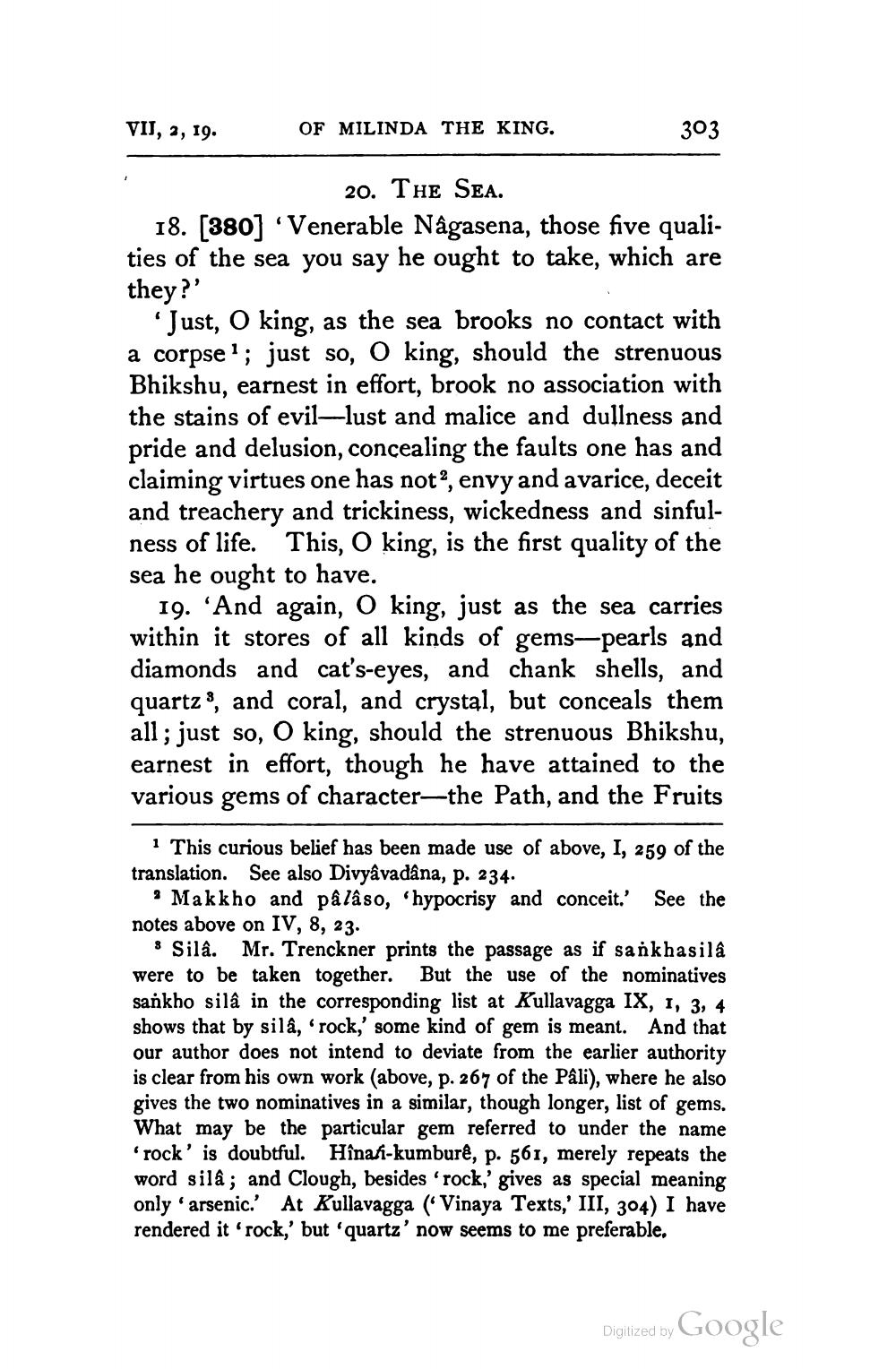________________
VII, 2, 19.
OF MILINDA THE KING.
303
20. THE SEA.
18. [380] Venerable Nâgasena, those five qualities of the sea you say he ought to take, which are they?'
'Just, O king, as the sea brooks no contact with a corpse1; just so, O king, should the strenuous Bhikshu, earnest in effort, brook no association with the stains of evil-lust and malice and dullness and pride and delusion, concealing the faults one has and claiming virtues one has not2, envy and avarice, deceit and treachery and trickiness, wickedness and sinfulness of life. This, O king, is the first quality of the sea he ought to have.
19. 'And again, O king, just as the sea carries within it stores of all kinds of gems-pearls and diamonds and cat's-eyes, and chank shells, and quartz, and coral, and crystal, but conceals them all; just so, O king, should the strenuous Bhikshu, earnest in effort, though he have attained to the various gems of character-the Path, and the Fruits
1 This curious belief has been made use of above, I, 259 of the translation. See also Divyâvadâna, p. 234.
Makkho and pâlâso, 'hypocrisy and conceit.' See the notes above on IV, 8, 23.
3 Silâ. Mr. Trenckner prints the passage as if sankhasilâ were to be taken together. But the use of the nominatives sankho silâ in the corresponding list at Kullavagga IX, 1, 3, 4 shows that by silâ, 'rock,' some kind of gem is meant. And that our author does not intend to deviate from the earlier authority is clear from his own work (above, p. 267 of the Pâli), where he also gives the two nominatives in a similar, though longer, list of gems. What may be the particular gem referred to under the name 'rock' is doubtful. Hînafi-kumburê, p. 561, merely repeats the word silâ; and Clough, besides 'rock,' gives as special meaning only arsenic.' At Kullavagga (Vinaya Texts,' III, 304) I have rendered it 'rock,' but 'quartz' now seems to me preferable,
"
Digitized by Google




